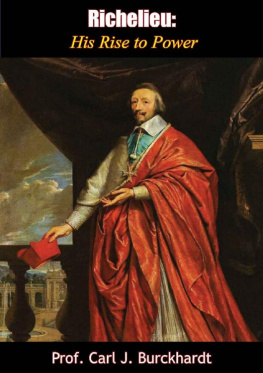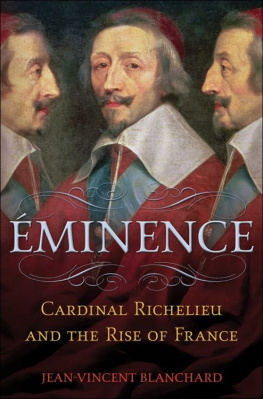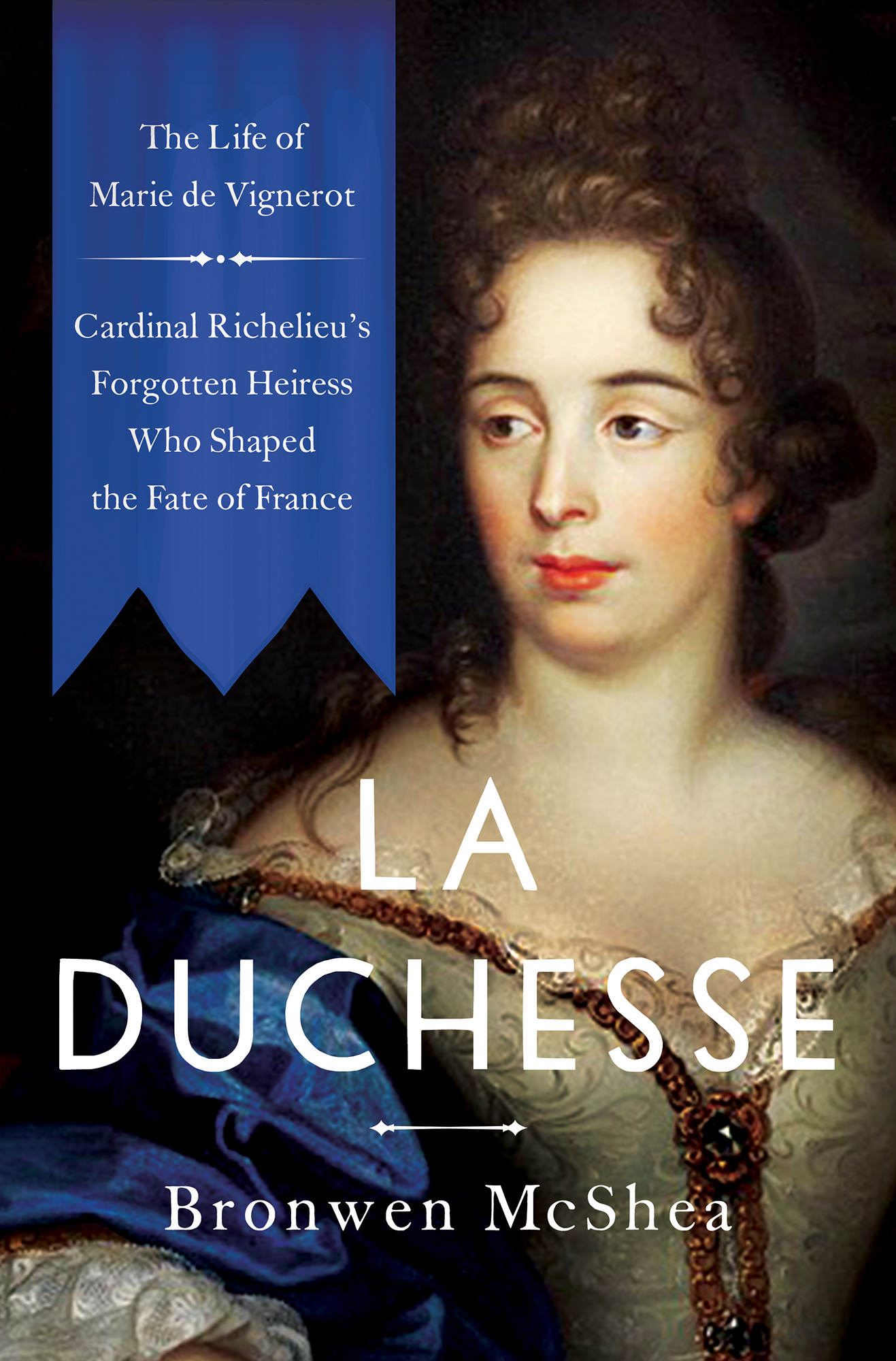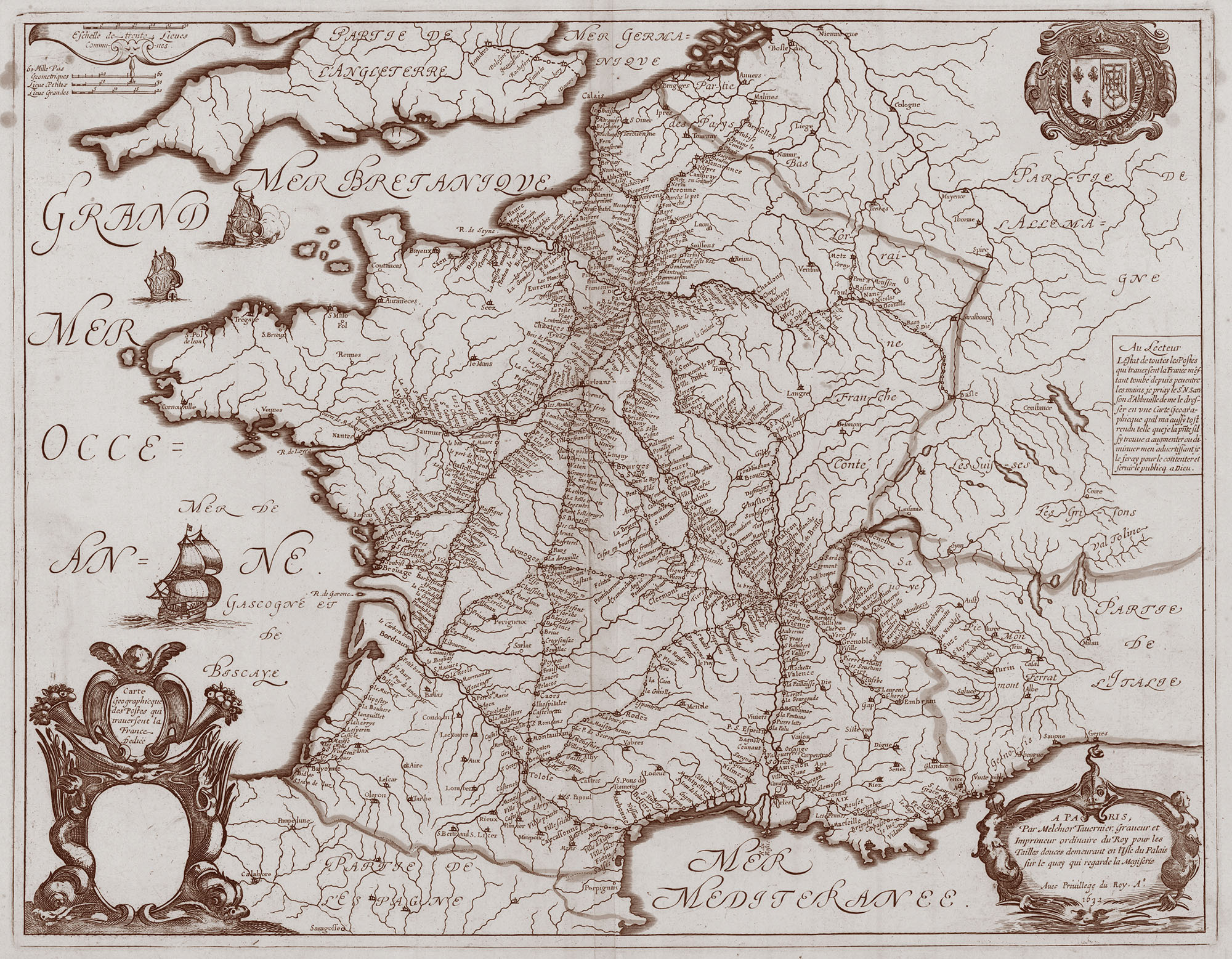Bronwen McShea - La Duchesse: The Life of Marie de Vignerot―Cardinal Richelieus Forgotten Heiress Who Shaped the Fate of France
Here you can read online Bronwen McShea - La Duchesse: The Life of Marie de Vignerot―Cardinal Richelieus Forgotten Heiress Who Shaped the Fate of France full text of the book (entire story) in english for free. Download pdf and epub, get meaning, cover and reviews about this ebook. City: New York, year: 2023, publisher: Pegasus Books, genre: Non-fiction / History. Description of the work, (preface) as well as reviews are available. Best literature library LitArk.com created for fans of good reading and offers a wide selection of genres:
Romance novel
Science fiction
Adventure
Detective
Science
History
Home and family
Prose
Art
Politics
Computer
Non-fiction
Religion
Business
Children
Humor
Choose a favorite category and find really read worthwhile books. Enjoy immersion in the world of imagination, feel the emotions of the characters or learn something new for yourself, make an fascinating discovery.

- Book:La Duchesse: The Life of Marie de Vignerot―Cardinal Richelieus Forgotten Heiress Who Shaped the Fate of France
- Author:
- Publisher:Pegasus Books
- Genre:
- Year:2023
- City:New York
- Rating:3 / 5
- Favourites:Add to favourites
- Your mark:
La Duchesse: The Life of Marie de Vignerot―Cardinal Richelieus Forgotten Heiress Who Shaped the Fate of France: summary, description and annotation
We offer to read an annotation, description, summary or preface (depends on what the author of the book "La Duchesse: The Life of Marie de Vignerot―Cardinal Richelieus Forgotten Heiress Who Shaped the Fate of France" wrote himself). If you haven't found the necessary information about the book — write in the comments, we will try to find it.
Married off at sixteen to a military officer she barely knew, Marie de Vignerot was intended to lead an ordinary aristocratic life, produce heirs, and quietly assist the men in her family rise to prominence. Instead, she became a widow at eighteen and rose to become the indispensable and highly visible right-hand of the most powerful figure in French politicsthe ruthless Cardinal Richelieu.
Richelieu was her uncle and, as he lay dying, the Cardinal broke with tradition and entrusted her, above his male heirs, with his vast fortune. She would go on to shape her countrys political, religious, and cultural life as the unconventional and independent Duchesse dAiguillon in ways that reverberated across Europe, Africa, Asia, and the Americas.
Marie de Vignerot was respected, beloved, and feared by churchmen, statesmen, financiers, writers, artists, and even future canonized saints. Many would owe their careers and eventual historical legacies to her patronage and her enterprising labor and vision. Pope Alexander VII and even the Sun King, Louis XIV, would defer to her. She was one of the most intelligent, accomplished, and occasionally ruthless French leaders of the seventeenth century. Yet, as all too often happens to great women in history, she was all but forgotten by modern times.
La Duchesse is the first fully researched modern biography of Vignerot, putting her onto center stage in the histories of France and the globalizing Catholic Church where she belongs. In these pages, we see Marie navigate scandalous accusations and intrigue to creatively and tenaciously champion the people and causes she cared about. We also see her engage with fascinating personalities such as Queen Marie de Mdici and influence French imperial ambitions and the Fronde Civil War. Filled with adventure and daring, art and politics, La Duchesse establishes Vignerot as a figure without whom Frances storied Golden Age cannot be fully understood.
Bronwen McShea: author's other books
Who wrote La Duchesse: The Life of Marie de Vignerot―Cardinal Richelieus Forgotten Heiress Who Shaped the Fate of France? Find out the surname, the name of the author of the book and a list of all author's works by series.









